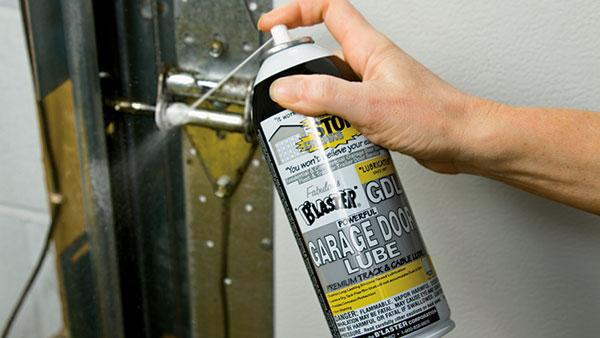Is the constant clattering of your garage door opener disrupting the peace of your home? In this detailed guide, we’ll explore effective solutions on “How to Fix a Noisy Garage Door Opener.” Discover practical tips to bring tranquility back to your living space by addressing the source of the racket.

Taming the Decibels:
Embark on a journey to a quieter garage as we delve into the strategies and techniques to silence a noisy garage door opener.
Understanding How to Fix Noisy Garage Door Opener
1. Identify the Source of the Noise*
Before diving into solutions, it’s crucial to identify the source of the noise. Noises from a garage door opener can stem from various components, including the opener unit, the track, or the garage door itself.
2. Lubrication: The Silent Elixir*
In many cases, inadequate lubrication is a primary culprit behind a noisy garage door opener. Regularly lubricate moving parts such as rollers, hinges, and springs using a high-quality garage door lubricant. This simple step can significantly reduce friction and noise.
3. Tighten Loose Hardware*
Over time, vibrations and usage can loosen bolts, nuts, and other hardware. Inspect the entire garage door system, including the opener unit, and tighten any loose components. A securely assembled system is less likely to generate disruptive sounds.
4. Replace Worn Rollers*
Worn or damaged rollers can create loud noises as they move along the tracks. Replace any rollers showing signs of wear and consider upgrading to nylon rollers, known for their quieter operation.
Read too: Why Is My Chamberlain Garage Door Opener Opening By Itself? Decoding the Mystery
Step-by-Step Solutions for a Quieter Garage Door Opener
Explore detailed solutions to address specific noise issues associated with garage door openers.
1. Lubrication Techniques for a Quieter Operation
- Silencing the Chain or Belt: Apply a generous amount of lubricant to the chain or belt that drives the garage door opener. This reduces friction and minimizes the noise generated during operation.
- Springs and Hinges: Focus on the springs and hinges of the garage door. Lubricate them thoroughly to ensure smooth movement. Be cautious not to over-lubricate, as excess lubricant can attract dirt and debris.
2. Tightening and Securing the Hardware
- Inspecting and Tightening: Examine all nuts, bolts, and screws in the garage door system. Use a wrench or screwdriver to tighten any that have come loose. Pay special attention to the mounting brackets and connections to the door and opener unit.
- Garage Door Opener Unit:* Check for any loose components in the opener unit itself. Tighten any screws or bolts and ensure that the unit is securely mounted to the ceiling.
3. Replacing Worn Rollers for a Smooth Glide
- Identifying Worn Rollers: Inspect the rollers for signs of wear, such as cracks, chips, or misshapen edges. If the rollers exhibit any of these issues, it’s time for a replacement.
- Upgrading to Nylon Rollers:* Consider replacing metal rollers with nylon rollers. Nylon rollers operate more quietly and are resistant to wear. This upgrade can make a significant difference in reducing noise.
Conclusion: Embracing the Tranquility of a Silent Garage Door Opener
By following the practical steps outlined in “How to Fix a Noisy Garage Door Opener,” you can transform your garage from a cacophony of clatters to a haven of tranquility. Regular maintenance, lubrication, and attention to hardware can make a substantial difference in the noise level generated by your garage door opener.
Bring peace back to your home with a silent garage door opener, allowing you to enjoy the serenity of your living space without the disturbance of a noisy entrance.



Leave a Reply